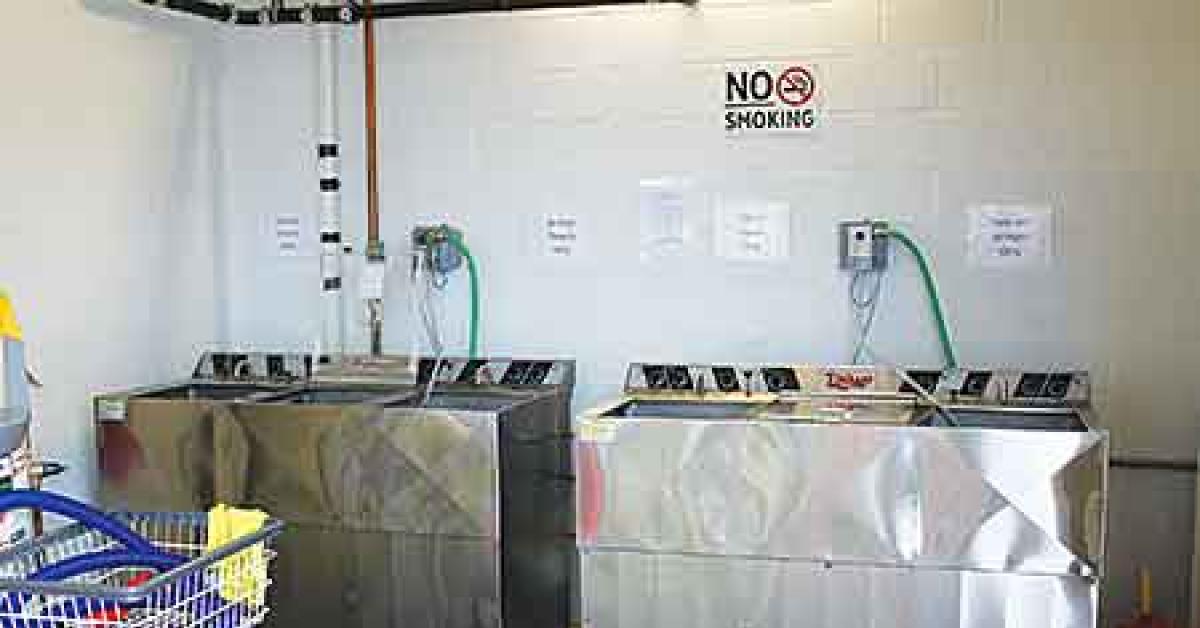CHICAGO — Textile care facilities come in a variety of shapes and sizes, from massive plants processing linens commercially to tiny rooms hidden away in the basements of buildings. For those businesses and institutions that prefer to keep their laundry processing in-house, such as in common environments like hotels and hospitals, a unique set of challenges greet their laundry operators every day.
That is also true for laundries serving niche markets, where processing environments don’t mirror those of more traditional OPLs, and where laundry might only be a small cog in a large wheel. Regardless of these differences, laundries in niche markets are like other OPLs in that they need the right equipment for the job.
American Laundry News spoke to some manufacturers and distributors of laundry equipment designed to address the needs of these niche markets. They shared the requirements and considerations of less-than-common OPLs, such as those found in car washes, cruise ships, spas, salons, athletic facilities and party rental companies.
PARTY RENTAL FACILITIES: THE IMPORTANCE OF FINISHING
While many niche laundries are pressed for space, a party rental laundry might be located in a facility as large as a warehouse, where finding the room to put equipment is not a problem.
“That’s why a lot of party rental [facilities] entertain the idea of bringing their linen in-house for processing,” says Matt Fields, director of special projects at Chicago Dryer Co.
Another difference is that party rental facilities are dealing primarily in pieces, not pounds, and they’re processing spun-polyester linen, especially napery, Fields says.
Ultimately, most party rental facilities that decide to bring their laundry processing in-house do so for better control and higher quality.
“They can control the inventory, and they can control the quality that goes out to the customer,” Fields says.
In environments like this, production output often takes a back seat to quality when it comes to processing. Maintaining adequate inventory is a major challenge for this type of laundry, since they deal with such a wide variety of product types, from items of differing colors to ones of varying fabrics, weaves and embellishments.
Fields says most party-rental facility laundries generally forgo dryers and process their linens using just washers and ironers. Chicago Dryer manufactures flatwork ironers specifically for the party rental industry that come in a variety of sizes, including models that are large enough to process 132-inch banquet rounds—common in the industry—without folding them in half, Fields says.
The company’s various sizes of heated cylinders allow products to move directly from the washer to the ironer with pre-conditioning in a dryer.
“The quality by going from the washer to the ironer is significant,” Fields says.
Seasonal fluctuations in the party rental business, and the changing staffing requirements that come with those fluctuations, can have effects for those who operate flatwork equipment, an issue that laundry operators need to consider.
“[The employees who] are feeding the flatwork ironer are critical to the success of the quality,” Fields comments.
CORRECTIONAL FACILITIES: SECURITY AND SUPERVISION
Joel Jorgensen, VP sales and customer service at Continental Girbau, says one difference between a laundry at a federal or state correctional facility and a more typical OPL is that the laundry’s workers—usually the prisoners themselves—are under supervision, either through video surveillance or through direct human supervision.
Security measures need to be considered in this environment, as these measures can have some effect on the design and operation of the laundry. Jorgensen recommends equipment that is durable, with components “that cannot be easily removed and/or accessed” by workers, and adds that Continental Girbau makes industrial equipment that can be modified for the requirements of a facility.
When purchasing equipment, operators are usually most concerned with finding something that will work reliably for years to come and will be equipped to handle potential changes in future processing requirements.
“Based on some of the equipment we have replaced over time, they’re going to hold on to that equipment for many, many years,” Jorgensen says. “So they have to invest in equipment that’s going to last, that’s durable, industrial construction, and [that will] remain flexible for the test of time and technology.”
In terms of textiles, quality is normally not of the highest concern, but the quantities of linens processed—towels, sheets, bedding, foodservice items, etc.—may be significant. Jorgensen says microfiber products are becoming more popular in correctional facilities because of their durability and simplicity for processing, as well as their increasing affordability.
“You can’t really talk about productivity and throughput in a correctional facility, but [operators] certainly want to make laundry as efficient as possible … and they don’t want to have to continually replace items,” Jorgensen says.
Operators of laundries in correctional facilities may also find that they don’t have the same support systems available to operators at more traditional OPLs, especially in terms of interfacing with chemical, utility and laundry equipment consultants on a regular basis.
“Corrections is not always the easiest type of facility to access,” Jorgensen says. “You have to jump through some hoops and have security clearance. Supervisors and/or operators have to learn their trade and be pretty self-sufficient.”
CAR WASHES: EQUIPMENT VS. THE ELEMENTS
Though car washes rely on a steady supply of rags for wiping and polishing, the setup of the laundries in these facilities is typically an afterthought, according to Ryan Smith, president of AAdvantage Laundry Systems, a distributor of laundry equipment serving parts of the South and Southeast. He says washers are often placed very near to the tunnels where cars are being cleaned, which is ideal for convenient access but not so great for protecting the equipment from potentially damaging substances.
Because of this, a complex machine with controls and other high-tech features wouldn’t be the best choice in this setting, Smith explains.
“I would say the car-wash industry has some of the harshest environments in the industrial laundry space,” Smith says. “Because … water and chemicals are very detrimental to electrical components. And in those car-wash tunnels, there’s a lot of water and a lot of chemicals.”
Another important consideration is that the laundry equipment is used by multiple operators—who are usually multi-tasking to a high degree—instead of one dedicated person. These employees may not have much time or patience for operating the laundry machinery, since they’re typically focusing on other things. For these reasons, Smith recommends laundry equipment without all the bells and whistles.
“It needs to be very, very simple,” he advises. “It needs to be just the basics.”
A washer with a quick cycle will help these laundries process the towels they use, which Smith says is essential, as car washes rarely have spare towels in storage. In this case, quick production is of the utmost importance.
“They’re typically going to have four to six hours worth of towels,” he says. “And on Saturday and Sunday, when they’re nonstop for the entire day, they can’t afford to have any kind of a blip in their towels.”
UniMac manufactures a top-load washer popular with car washes, Smith says, because of its simplicity and quick wash cycle. It consists of two wash tubs with an industrial extractor situated in the middle of the unit. Workers add soap and water, let the load agitate for 15 minutes, put the load in the extractor afterward, and voilà—clean towels for wiping and drying.
“My advice is to create a process, create a flow, and keep it simple,” Smith says of operating a car wash laundry. “Because, once again, [operators’] main job is not necessarily laundry—it’s clean cars.”
Miss Part 1? You can view it HERE.
Have a question or comment? E-mail our editor Matt Poe at [email protected].



